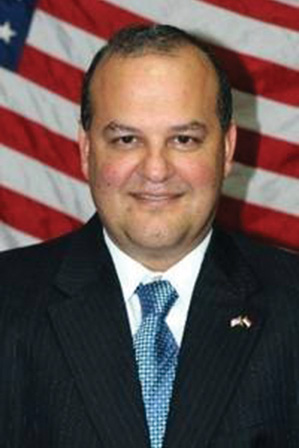Starting Out
State VP Voice
BY TOM YAZDGERDI

Thank you to those who elected me as AFSA’s State vice president. I will do everything in my power to earn your trust by helping to strengthen our union and ensuring our voice is heard within the department, in the halls of Congress and by the American people.
I look forward to collaborating with our new president, Ambassador Eric Rubin, a proven leader of the greatest integrity whom I have had the pleasure to know for nearly 30 years.
I also want to recognize the efforts of AFSA’s outgoing president, Ambassador Barbara Stephenson; my predecessor, AFSA State VP Ken Kero-Mentz; and the whole AFSA team for raising AFSA’s profile and grappling with issues of vital importance to the U.S. Foreign Service.
Under their leadership, AFSA has managed to gain key bipartisan congressional support even as we continue to serve in a hyper-polarized political environment.
Indeed, there is now a real understanding and respect on Capitol Hill for the work that we do and for ensuring that the department has the resources it needs.
I worked for a member of Congress in Washington, D.C., right out of college, and will draw on that formative experience to build on the bipartisan support that we enjoy in our relations with Congress.
AFSA has had some significant wins. Having urged the department to address serious concerns from parents of children with special educational needs over the past several years, AFSA was heartened to see the new policy (and updated FAM) that aims to better support FS families with special needs children.
I am motivated to see the Foreign Service not just survive in this difficult environment, but thrive.
The new policy explicitly encourages Foreign Service members with special needs children “to bid on and serve in foreign assignments,” stating that “[it] is in the Department’s interest to facilitate the overseas capacity of our workforce, but more important, it is our ethos to put our people first.” Many families who needed the Special Needs Education Allowance (known as SNEA) support had a strong impression that MED wanted them to not serve overseas.
We can all take great satisfaction in this change, but there is more work to be done to make certain this policy change is implemented fairly and comprehensively. That is one issue AFSA will focus on to improve our Foreign Service.
Here are just a few of the other challenges that face us. We need to ensure that there are equal promotion and advancement opportunities for everyone, including our economic officers; that the department appropriately implements a waiver policy for the greater hardship service requirements so otherwise qualified members are able to cross the senior threshold; and that tandem couples are dealt with in a manner that recognizes the needs of the Service but also puts a premium on keeping these couples together.
Admittedly, I have much to learn about my new position, especially how our officers and constituent leaders interact with our labor-management team and with department management. But I believe that my State experience, including the negotiations I was involved in as special envoy for Holocaust issues in my previous assignment, has prepared me well.
I am motivated to see the Foreign Service not just survive in this difficult environment, but thrive. If we are to do that—and to attract the best and brightest who reflect the diversity of America—then we must make certain our workplace practices truly support our most precious asset: Foreign Service officers, specialists and their families.
My door will always be open to all who seek redress of legitimate grievances and who have innovative ideas on making AFSA, our Foreign Service and the department stronger, more accountable and more efficient.

